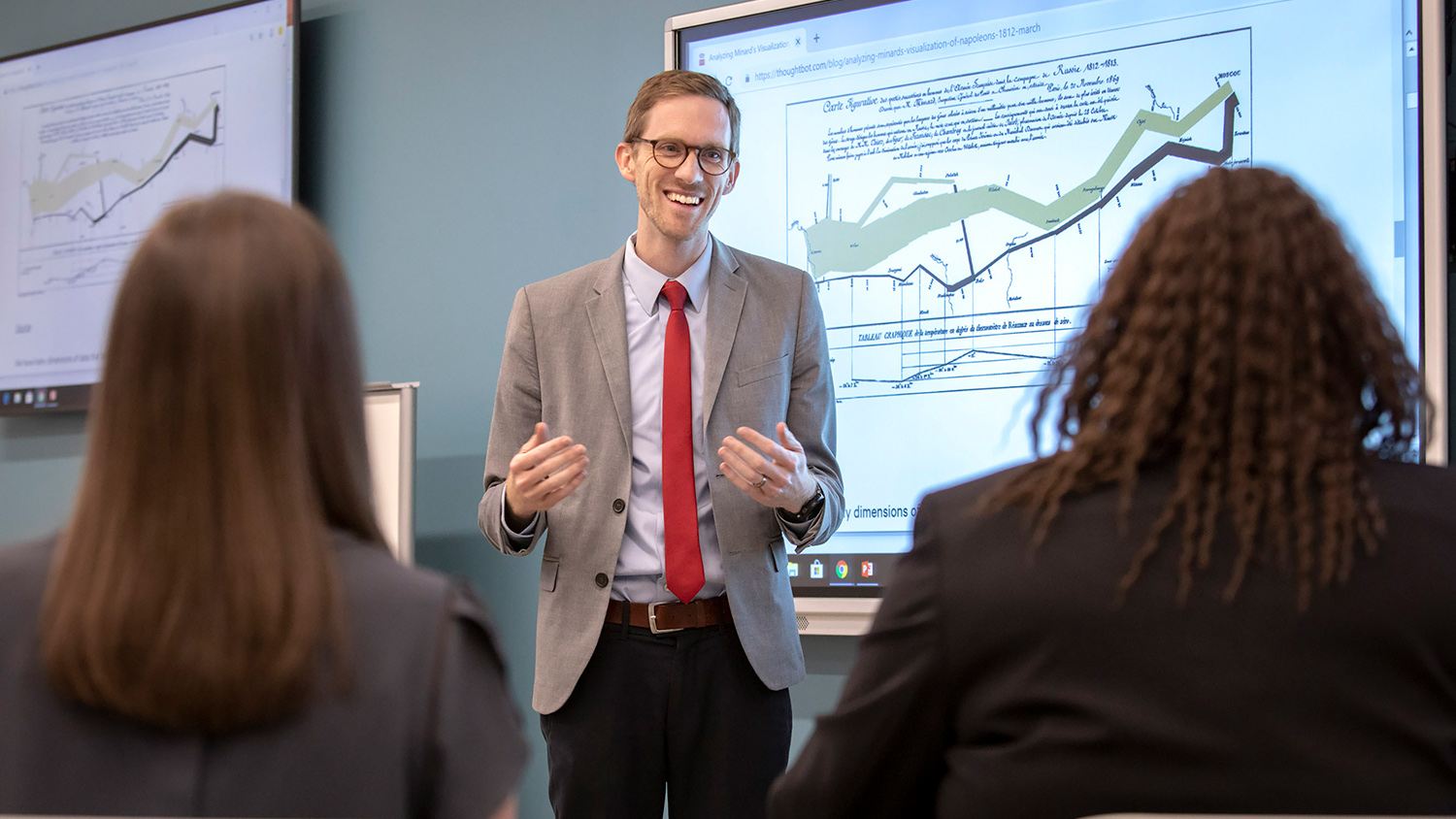Assistant Professor Timothy Drake: “The Principal Pipeline is Only as Healthy as the Teacher Pipeline”

Timothy Drake, Ph.D., assistant professor of education leadership and policy, recently participated in a panel to discuss the condition of the principal pipeline and principal preparation in North Carolina at the invitation of the North Carolina State Board of Education. In this Q&A, Drake shares highlights of what he discussed during the panel before the N.C. State Board of Education, including how the expectations of principals have changed in recent years and his call for a state-wide articulation of a school leadership pipeline.
What is the condition of the principal pipeline and principal preparation in North Carolina today?
The principal pipeline is only as healthy as the teacher pipeline, and many of the same obstacles for teacher recruitment apply for principal recruitment (e.g., salary, amount of work, perceived status of the profession). The principalship, however, is not the same as it used to be.
How so?
That is, the traditional view of the principalship was one of administration — making sure that students were safe, that the lights were turned on, that teachers showed up, etc.
[spotlight-box label=”” img=”” heading=”Redesigning Principal Preparation Through Strong University-District Partnerships” cta=”Watch the Webinar” url=”https://www.youtube.com/watch?v=0WmcKaHoWXo&feature=youtu.be”]Assistant Professor Timothy Drake is the principal investigator on a $5.1 million Wallace Foundation grant part of the national University Preparation Program Initiative to research the practices and policies that best support the development of school leaders through high-quality university-district partnerships and how to implement them effectively in order to develop highly-effective school leaders. In this webinar from the National Association of Secondary School Principals, Drake joins other project directors and their district partners to discuss the initiative’s purpose, design and progress and the next steps. [/spotlight-box]
While all this is still true, principals are now asked to be the instructional leaders of their buildings; they are asked to reach out to parents and network with their communities; they are asked to evaluate their teachers through time-intensive classroom observations and pre- and post-conferences; they are asked to use a variety of teacher and student data to inform their school’s vision, school improvement plan, instructional program, and human capital decision making; and on and on. The list continues to grow and expand. And all of this while working within an environment of transparency and test-based accountability. It’s no wonder why many teachers look at all the work their principals do and say, “No thanks!”
Of course, there are some important developments in North Carolina that are changing the landscape for the principal pipeline and principal preparation.
What are those developments?
First, the Principal Fellows program just celebrated its 25th anniversary. Principal Fellows has been an important catalyst for attracting candidates to the principalship. Currently, Dr. Eddie Price, the new director of the program, is working to bring together the participating higher education institutions in order to share best practices and collaborate on ways to be more responsive to the changing landscape of principal preparation.
Second, North Carolina recently passed legislation to fund innovative principal preparation models. Learning from these programs will be extremely important for the state.
Finally, with funding from the Wallace Foundation, we are working with the N.C. Department of Public Instruction to develop a state-wide Leadership Development Dashboard (LDD) for both school districts and institutions of higher education. The LDD will provide streamlined access to information on assistant principals and principals throughout the state, helping districts to make more informed hiring and placement decisions and helping university programs evaluate the effectiveness of their programs.
What other recommendations do you have in terms of addressing challenges related to principal preparation programs?
One of the most important components of principal preparation is the internship — experiences that students have working as administrators during their preparation program. While there are a number of ways in which preparation programs provide students with internship experiences, the research is clear that full-time, embedded internships are the most effective. In our state we are extremely fortunate to be able to use state funding to pay for a yearlong, embedded internship for full-time Masters of School Administration students. However, the rate of funding is at the salary of a first-year assistant principal, or $41,650.
For many teachers with experience, this represents a significant drop in pay. I recommend that an easy fix to the legislation would be to hold teacher’s salaries harmless for their internship. This would be a tremendous help to us who work in principal preparation, as many of our best teachers who want to pursue the principalship are staying in the classroom because they can’t afford to take the cut in pay.
- Categories:


